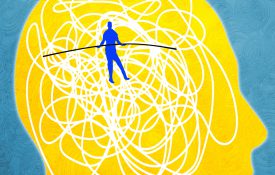-

The Cognitive Upside of Aging
Big Data involving thousands and thousands of participants is enabling researchers to track the development of different cognitive skills across the lifespan with increasing accuracy. And the results of these studies bring light to some surprising — and perhaps heartening — findings about the aging brain.
-

Mental Flexibility May Buffer Against Emotional Stress
Brain imaging research suggests that our ability to do “cold” math calculations may be connected with our ability to regulate “hot” emotions.
-
Teens Who Say No to Social Media
The Wall Street Journal: When 14-year-old Brian O’Neill of Washington, D.C., wanted to find out what his friends had been up to over summer vacation, he did something radical: He asked them. Unlike most kids
-

The ‘Stubborn’ Cerebellum
Psychological scientists don’t typically describe brain areas as fickle, two-faced, or agreeable, but APS William James Fellow Richard B. Ivry explains why he ascribes a specific personality trait to the region that controls our sensorimotor system.
-
Neuroscientists scanned Sting’s brain. Here’s what they learned.
The Washington Post: A book with the title “This Is Your Brain on Music” would, presumably, be of great interest to a musician like Sting. His gray matter has been on the stuff for a
-
Researchers Study Effects Of Social Media On Young Minds
NPR: So if you’re freaking out because you think social media is running your life, I recommend that you do not listen to the next four minutes or so of radio. My colleague, social science

